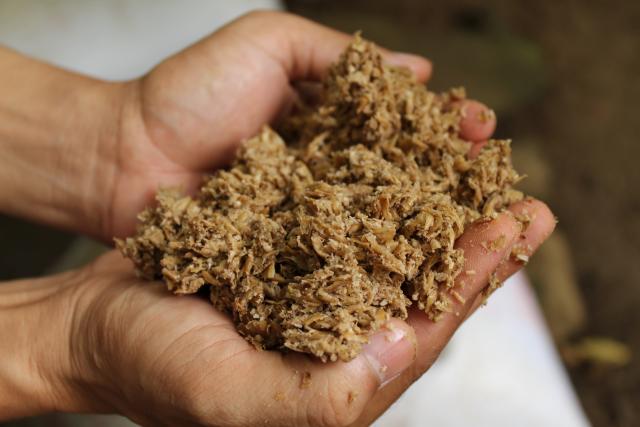 |
| Gilles Tran / AFZ |
Enter a team of researchers from Singapore, who have developed a way to extract protein from this spent brewer's grain. This recovered protein is safe for human consumption and could be used in both supplements and in plant-based food normally low in protein.
The process is pretty straightforward: First, the grain is sterilized before being exposed to Rhizopus oligosporus, a fungus typically used to ferment soybeans in the production of tempeh, a food common in southeast Asia. Here, the fungus breaks down the grain's structure, making the protein more easily accessible. After the fermentation period, the grain is dried, crushed, and spun through a centrifuge to separate the protein. As much as 20% of the grain's total mass can be recovered, and while that still leaves a lot of waste, any amount of recycling is better than no recycling.
Beyond the recycled protein's obvious potential as a food supplement, the researchers also found them to be very high in antioxidants, pointing to potential as an ingredient in cosmetics. Antioxidant-rich proteins help protect skin against pollutants and can also extend the shelf life of things like lotions and moisturizers. These products likely wouldn't be cheap, but as the researchers note, two-thirds of people are willing to pay a premium to purchase products they view as being sustainable, good for the environment, etc.
And you know what? That's honestly fair. We all like to think we're better than the common masses, but if Troeg's ever came out with a lotion or something that incorporated spent grain from their Troegenators, I'd probably be first in line to buy a bottle. Or five. Everything is better if it has beer in it. That's just a fact of life.

No comments:
Post a Comment